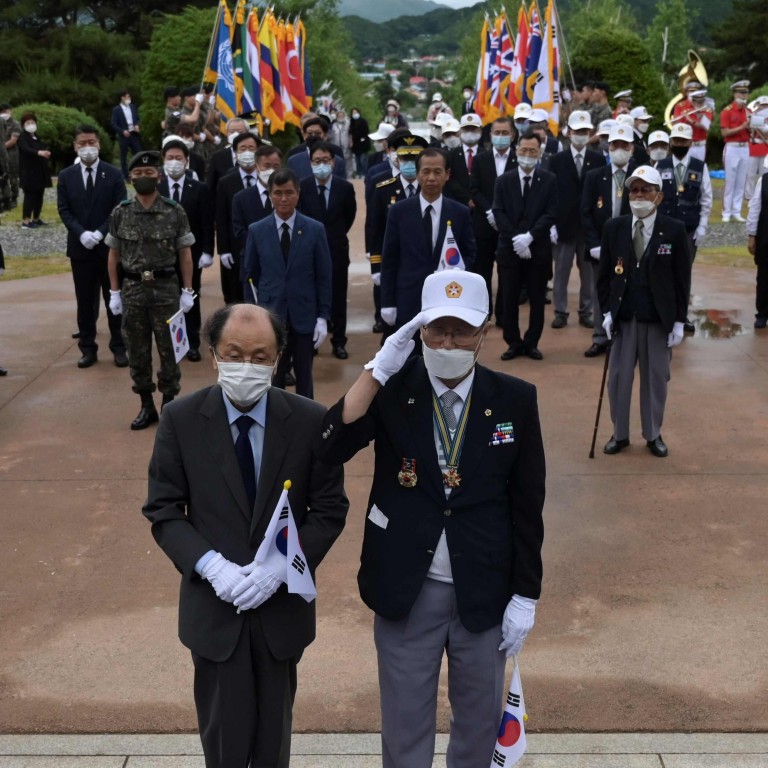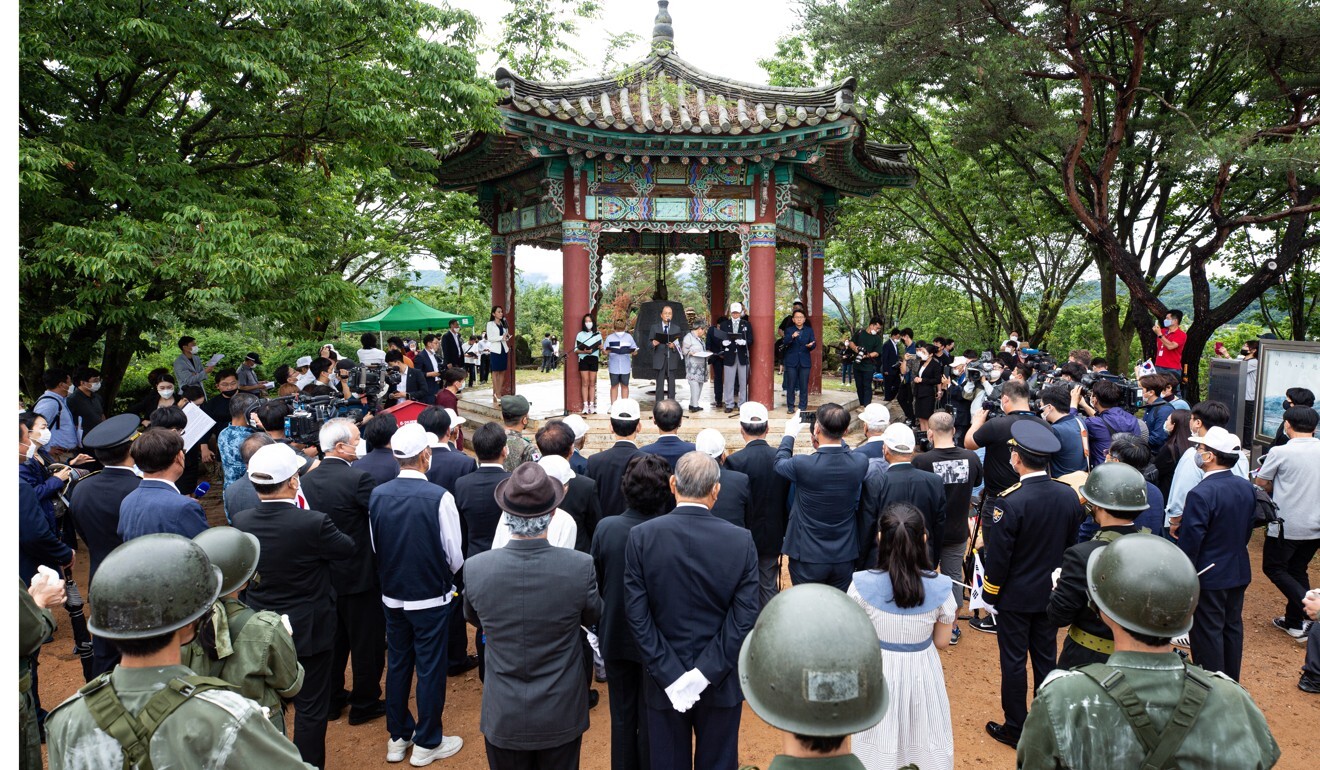
Korean war 70th anniversary sees calls for peace, disarmament
- North Korea invaded the US-backed South in 1950, triggering a bloody three-year war which technically still continues
- South Korea and the US reaffirmed their commitment to defending peace, while North Korea said it needs its nuclear arsenal to deter a US invasion
Communist North Korea invaded the US-backed South on June 25, 1950, triggering the three-year war. Fighting ended with an armistice that was never replaced by a peace treaty, leaving the peninsula divided by the demilitarised zone and still technically at war.
“On this day in 1950, the US-ROK military alliance was born of necessity and forged in blood,” US Secretary of Defence Mark Esper and his South Korean counterpart Jeong Kyeong-doo said in a joint statement.

They urged North Korea to implement the disarmament pledges it made in past talks, saying the allies will keep pushing for diplomacy aimed at achieving the North’s complete denuclearisation.
The defence ministers paid tribute to the “sacrifice, bravery, and legacy of those who laid down their lives in defence of a free, democratic, and prosperous” South.
Seoul’s defence ministry puts the war’s military fatalities at 520,000 North Koreans, 137,000 South Koreans, and 37,000 Americans.
The official Rodong Sinmun newspaper carried more than 10 stories on the war on Thursday, including an editorial asserting that a US invasion had turned “the entire country into ashes” and that a ceasefire does not mean peace. “The enemy is aiming for the moment that we forget about June 25 and lower our guard.”
The nuclear-armed North, which is subject to multiple international sanctions over its banned weapons programmes, says it needs its arsenal to deter a US invasion.

The newspaper carried a picture of a war heroes’ cemetery on the outskirts of Pyongyang, with the caption reading: “The great achievements of the victory generation will not be forgotten.”
At the site of one of the key battlefields in Cheorwon county, near the demilitarised zone dividing the peninsula, a handful of surviving South Korean war veterans marked the anniversary.
“It is our misfortune that the South and North had to live for nearly 70 years in confrontation because of the war,” a veteran said, before releasing white doves as a symbol of their hopes for a final peace settlement.

In recent weeks, North Korea turned to provocations targeting South Korea. It cut off all communication lines with South Korea, blew up a Seoul-built liaison office on its territory and threatened to take steps to nullity the 2018 deals meant to ease tensions at the border.
Moon’s vision of peace with North Korea goes up in smoke
Recent events showed that inter-Korean relations “can turn into a house of cards at any time”, the South’s JoongAng Daily said in an editorial on Thursday on the anniversary.
The South Korean government has “persistently turned a blind eye” to Pyongyang’s provocations, it said, resulting in a “slackening sense of security”.
“There is no free ride in keeping peace. We hope the government and defence ministry deeply reflect on the lesson of 70 years ago,” the editorial read.
“South Korea doesn’t have many options,” said Nam Sung-wook, a professor at the South’s Korea University who formerly headed a think tank affiliated with Seoul’s main spy agency. “We are the same Korean people but also [war] enemies. Achieving reconciliation and cooperation between the Koreas is not as easy as you might think.”

Seoul’s relationship with Washington has been strained in recent years by the Trump administration’s demands that it pay more towards the cost of keeping 28,500 US troops on the peninsula to protect the South from its nuclear-armed neighbour.
But the allies “remain firmly committed to defending the hard-fought peace on the Korean peninsula,” the defence ministers’ statement added.
US troops used Japanese children fighters in Korean war: documents
Jeong and Esper called on North Korea to “meet its commitments in alignment with” the joint statements issued after US-North Korea summit talks in Singapore in June 2018 and inter-Korean talks in September 2018.
In the joint statement issued after the Singapore summit with US President Donald Trump, Kim said his country “commits to work toward complete denuclearisation of the Korean peninsula” without specifying how and when disarmament steps would take place. North Korea used similar language previously when it demanded the US to withdraw its 28,500 troops from South Korea and end regular military drills as a precondition for its nuclear disarmament.
Subsequent US-North Korea talks, including two more Kim-Trump summits, have reported little progress, as North Korea said it will not unilaterally disarm unless the United States lifts crippling international sanctions on it and provide security guarantees.

.png?itok=arIb17P0)
